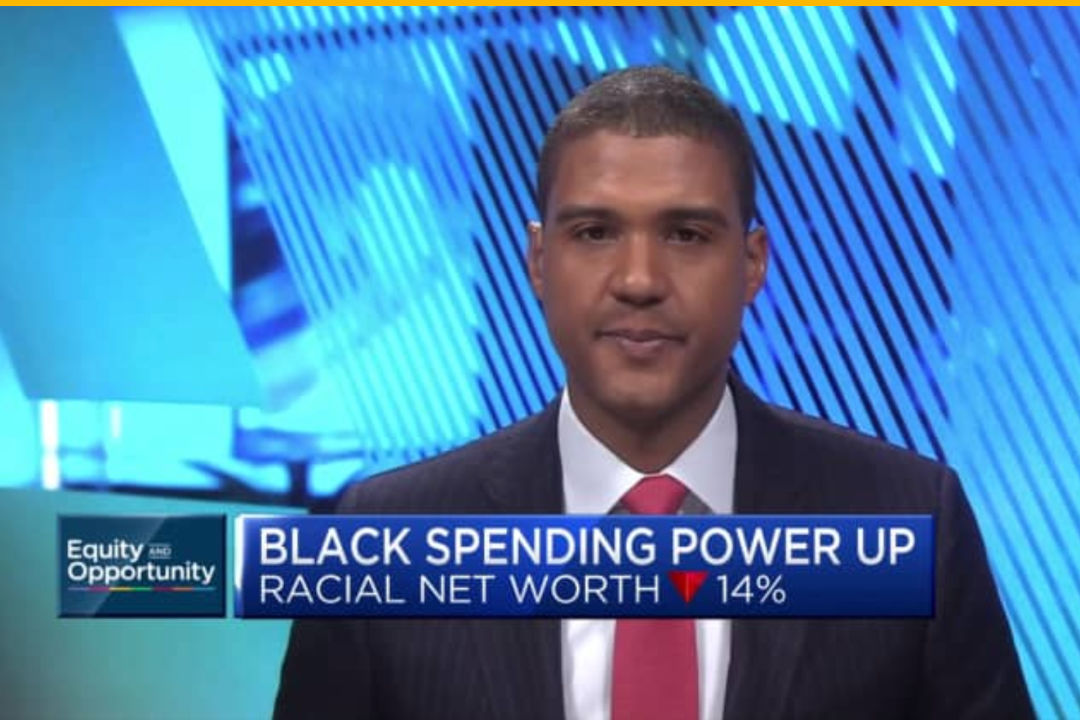Introduction:
In 2023, the African American community in the United States stands at a pivotal moment in history. With growing awareness and a strong sense of unity, there’s a tremendous opportunity to harness the collective economic strength of this community to drive meaningful change. One powerful way to do this is by strategically directing black spending power towards initiatives that uplift and empower the African American community. The attached CNBC video clip proclaims that Black spending reached a record high of $1.6 trillion in 2021 despite a global pandemic and declining net worth!
In this blog post, BLKBusiness.net explores an age old question, “Can Black Spending Improve Black Economics?” With more than forty percent of the American population between the ages of 11 and 42, we reiterate here for younger generations the importance of Black spending power, its impact, and practical ways to channel it for positive change. Please forward this posts to your kids, grandkids, family members and friends. Ask them to “Join The Email List”, take the brief Conscious Consumers Survey (its anonymous), and participate in this vital conversation about black spending and the future of the black community.
Understanding Black Spending Power:
Consumer spending is the amount of money individuals and households spend on final goods and services for personal use. Black spending power refers to the total income and disposable income of the African American community. It’s a substantial economic force, and according to Nielsen, it was projected to reach $1.8 trillion by 2023. However, much of the spending involves financing for higher ticket items like homes, cars, and college tuition, or credit card balances carried over 30 days. Unfortunately, record spending is reflected in record levels of household debt!
Claims that blacks are conspicuous consumers are pervasive in both popular and academic works said Ms. Cassi Louise Pittman in her Harvard dissertation on race and consumption. Her findings indicate that black consumption is at least partially explained by status considerations.1
Ms. Pittman’s research found that consumer spending accounts for over 60% of national economic growth and that there are more shopping malls in America than high schools! She concluded that blacks differ as consumers as a consequence of a history of racial alienation, segregation, and discrimination in public settings which has resulted in their use of goods to mitigate racial stigma.
Pittman goes further to break down the different patterns of consumption that exist along racial lines. Blacks outspend other groups, particularly whites in three central categories: apparel, personal care, electronics, and technology. Research has also established that blacks spend less in certain sectors, specifically 17 percent less on education, approximately 50% less on entertainment, and 56% less on health spending.
Ironically, one study revealed that retail venues are places where as many as 46% of black participants report that they encountered discrimination!
Contrastingly, the U.S. Bureau of Labor Statistics published in the same year [2021] that Blacks achieved a record high of $1.6 trillion in consumer spending; the unemployment rate of African Americans in the United States also reached a high of 9.9 percent2 in comparison to the 5.46 percent national average.3
Earning more than $1 trillion dollars annually, African Americans have to continually ask themselves how can this immense economic potential be leveraged to address longstanding issues such as economic disparities, education gaps, and systemic inequalities? In short, can Black Spending Improve Black Economics?
Here are a few of this author’s suggestions.
1. Supporting Black-Owned Businesses:
One of the most effective ways to harness black spending power is by supporting black-owned businesses. When you choose to spend your money at black-owned establishments, you’re not only stimulating economic growth within the community but also creating job opportunities and fostering entrepreneurship. This can lead to greater economic self-sufficiency.
Author Maggie Anderson in her book, Our Black Year: One Family’s Quest to Buy Black in America’s Racially Divided Economy, concluded that only 2 cents of every dollar an African American spends in this country goes to Black-owned businesses.
The Anderson Research asserts that if higher-income Black consumers spent at least $1 out of every $10 with Black-owned businesses, it would generate one million jobs for African Americans!
In a recent FoodTank.com article, Jasmine Ratliff, Co-Executive Director of the National Black Food and Justice Alliance, points to the emergence of black-led food co-ops in Oakland, Dayton, and Brooklyn as a prime demonstration of collective buying power, collective political power, and collective people power. The community members themselves own, manage, support, work at, and govern these cooperatives thus creating their own food sovereignty by defining their own food access and agriculture systems while tackling systemic inequalities.
Admittedly, not all businesses are created equally, and supporting some black-owned establishments is not without its challenges, but hopefully for the reasons presented in this post, it’s worth the effort! Thanks to social media, consumers can minimize risks by perusing the ratings and reviews included on many black search destinations.
2. Investing in Education:
According to The White House Proclamation on National Historically Black Colleges and Universities (HBCU) Week, 2022; HBCUs have produced 40 percent of all Black engineers, 50 percent of all Black lawyers, 70 percent of Black doctors, and 80 percent of Black judges in our country! Forbes.com contributing writer, Shaun Harper points out that in the 2022 academic year, the eight Ivy League institutions enrolled a total of 68,968 undergraduate students of which 5,063 were Black.4
Education is a powerful tool for advancement, and directing spending power towards educational initiatives can have a lasting impact. Consider supporting scholarship programs, after-school programs, or initiatives that provide resources for underprivileged students. Education is a gateway to breaking the cycle of poverty and creating future leaders.
3. Banking and Financial Literacy:
Black middle-class consumption patterns are an important variable in balancing the black economic equation. Research indicates that consumer debt, a product of consumer spending, has risen markedly among the middle class, where 63 percent of households are in credit card debt.
Chartered, regulated, and insured by the National Credit Union Administration, this summer, Alpha Kappa Alpha Sorority Inc. launched For Members Only (FMO) Federal Credit Union, the first black-owned, woman-led, sorority-based, digital banking financial institution in the history of the United States! Focused on efforts to generate economic and financial stability for women of color, AKA sorority members, their immediate families, and those who work for the organization, or the credit union will have access to primary savings, loans, and other banking services. “Everyone doesn’t understand the impact we make financially”, said Danette Anthony Reed, International President, and CEO of AKA Sorority. Alpha Kappa Alpha Sorority is comprised of more than 355,000 members in graduate and undergraduate chapters located in 12 countries.
Encouraging the African American community to make informed decisions about banking and financial planning is critical. Access to affordable financial services and financial literacy programs can help individuals and families build wealth and secure their financial future. Consider supporting or promoting initiatives that provide these resources.
4. Homeownership and Community Development:
Homeownership is a key driver of wealth in America. Author Fo Alexander explains that passing down a home is just one way black families can begin to build generational wealth. Without property as a key asset, each generation must find other ways to acquire enough wealth to leave to their children.5
Encourage investment in affordable housing initiatives, homeownership programs, and community development projects. By stabilizing neighborhoods and increasing property values, these efforts can have a cascading effect on economic empowerment.
5. Political Engagement:
Many Black Americans view political representation as a potential catalyst for increased racial equality, according to a June 2020 Pew Research Center survey. The 118th Congress, which was sworn in on January 7, 2023, is the most racially and ethnically diverse in history. Overall, 133 lawmakers identify as Black, Hispanic, Asian American, American Indian, Alaska Native, or multiracial. Together these lawmakers make up a quarter of Congress, including 28% of the House of Representatives and 12% of the Senate.6
Black spending power should also be channeled into supporting political candidates and initiatives that prioritize the needs and concerns of the African American community. Voting, advocating for policy change, and participating in grassroots movements can be incredibly impactful.
6. Social Impact Investing:
Consider exploring socially responsible investing options that align with the goals of uplifting the African American community. Social impact investing allows you to generate returns while also creating positive social change. One such example is Ariel Investments, the largest operating Black-owned mutual fund in the U.S. that focuses on providing capital to enable minority-owned businesses to set up their operations and scale, and to improve financial literacy among people of color.7
Conclusion:
Knowing how much impact supporting black businesses can make, Dr. Dionne Mahaffey author of 10 Ways To Support Black Businesses During Black Business Month shares that there are a multitude of options to find and support the 2.6 million black-owned businesses in this country.
- At the top of her lists are Internet searches for Black-owned businesses on Google, Etsy, or other search engines, and perusing Black Business Directories, Apps, Facebook, and LinkedIn Social media Groups.
- Contact your city’s Chamber of Commerce or The National Black Chamber of Commerce to find local businesses and who owns them.
- Less we forget, your health is your wealth. Take a little time to research or ask for a referral for an African American doctor.
- And the next time you need personal care or beauty supplies, check out one of the black-owned beauty supply stores first.
Final Words from The Author:
Harnessing black spending power in 2023 to uplift the African American community is not just an economic opportunity but a moral imperative. By making intentional choices about where we spend our money and how we invest it, we can collectively drive progress and address systemic inequalities that have persisted for generations. Let’s work together to ensure that the economic strength of the African American community is a force for positive change, creating a brighter and more equitable future for all.
(A new black-owned search destination, visit BLKBusiness.net or BLKOrganizations.net and Join the Email List, or Create A Listing for a free 12-month Display Ad for a limited time!)
Sources:
- Pittman, Cassi. 2012. Race, Social Context, and Consumption: How Race Structures the Consumption Preferences and Practices of Middle and Working-Class Blacks. Doctoral dissertation, Harvard University, http://nrs.harvard.edu/urn-3:HUL.InstRepos:9836713
- U.S. Bureau of Labor Statistics, Databases, Tables & Calculators by Subject, Labor Force Statistics from the Current Population Survey, “Unemployment Rate – Black or African American”, Data extracted April 18, 2023 https://data.bls.gov/timeseries/LNS14000006
- Unemployment rate in the United States 1991-2021,Published by Aaron O’Neill, Jan 25, 2023, https://www.statista.com/statistics/263710/unemployment-rate-in-the-united-states/
- Harper, S. (2023, July 2). Howard University Among HBCUs With More Black Students Than All 8 Ivy League Institutions Combined. Retrieved September 2023, from Forbes: forbes.com
- Schaefffer, K. (2023, February 07). The changing face of Congress in 8 charts. Retrieved September 2023, from Pew Research Center: pewresearch.org
- Alexander, F. (2023, May 07). The Importance Of Black Homeownership. Retrieved September 2023, from Clever Girl Finance: clevergirlfinance.com
- William Huston, A. (2023, September 14). Black Owned Investment Firms. Retrieved from Bay Street Capital Holdings: baystreetcapitalholdings.com



1 Comment